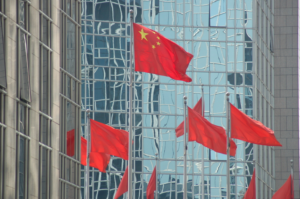Handlingerne fra regeringer, virksomheder, investorer og civilsamfundet som svar på COVID-19 vil forme vores fremtid, skriver Mary Robinson – tidligere FN kommissær for menneskerettigheder og Irlands premierminister fra 1990 til 1997.
“Midt i vores COVID-19-pandemi er der stigende opfordringer til, at regering og erhverv danner en ‘ny social kontrakt’. Dette vil tackle den øjeblikkelige økonomiske modgang og mere retfærdigt dele byrderne og fordelene ved vores økonomier,” skriver Mary Robinson blandt andet.
In the midst of our COVID-19 pandemic, there are rising calls for government and business to form a ‘new social contract’. This would tackle the immediate economic hardship, and more fairly share the burdens and benefits from our economies. This comes from actors as diverse as the International Trade Union Congress and the Financial Times. In contrast, too many business leaders appear willing to abandon their ‘social license to operate’ by passing the costs of this crisis to vulnerable workers in their supply chains. This approach not only exacerbates the immediate humanitarian suffering but also polarises further our unequal societies, creating greater public distrust of markets.
The scale and scope of the COVID-19 pandemic grows each day. This is also true for its impact on business and for the rights of workers and communities that depend on those businesses for their livelihoods. Millions of workers have been laid off in the supply chain factories of Asia and Latin America; the Bangladesh Garment Manufacturers and Exporters Association reports that a quarter of the 4 million garment workers are laid-off or sacked through to mass cancellations of fast fashion orders; ten million workers have registered as unemployed in the United States in two weeks. These are just a few examples of the harm catalogued in our portal on the impact of COVID-19 on business and human rights.
While the virus does not discriminate, our societies’ response does. The various impacts of our response to the pandemic are exaggerating the already extreme inequality that stalks our societies: migrant day-labourers in India are moving, en masse, from their slums to their home villages to avoid destitution; migrant workers in the Gulf construction industry are having to live in a ‘virtual prison’ after a COVID-19 outbreak; and the UK Institute of Fiscal Studies reports that the low-paid, women, and young workers are seven times more likely to work in UK sectors that have now been shut down.
In these extreme conditions, the relevance of the values and standards of the UN Guiding Principles for Business and Human Rights grows exponentially with the pandemic. These values must inform our search for adequate responses to humanitarian suffering now, and the search for solutions to ‘Build Back Better’, as UN Secretary General Antonio Guterres has put it.
Læs hele teksten her
https://www.business-humanrights.org/en/shaping-a-new-social-contract-through-the-pandemic











